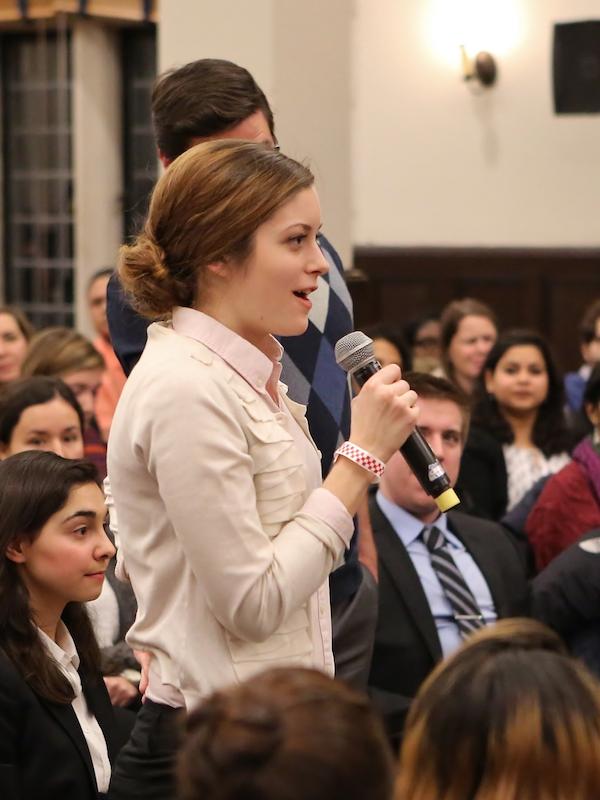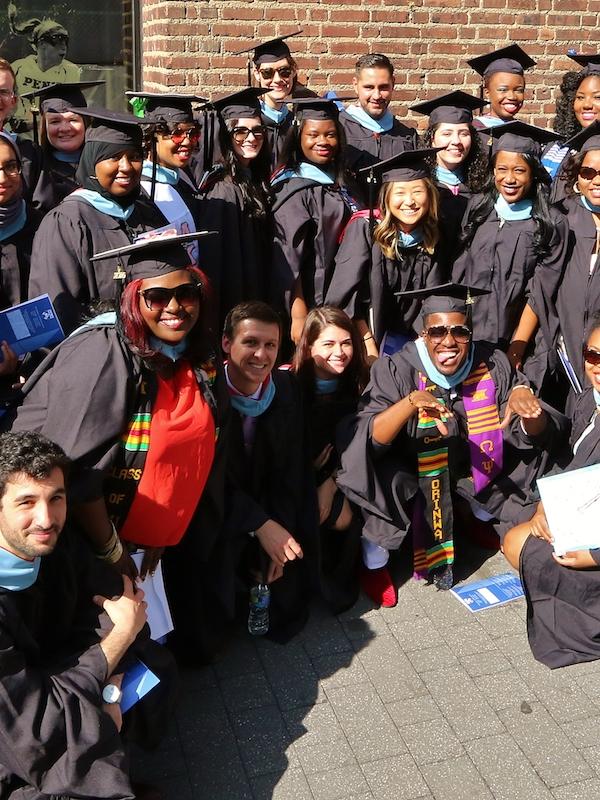Keeping Costs Down through Community Colleges
“When you make your institution or campus part of the community, you change the life of the community.”

Photo by Glen Ellman
By Lini S. Kadoba
For many, the cost of higher education is a major hurdle to attending and finishing a degree. The new administration has said it will work with Congress on reforms that encourage colleges and universities to reduce costs in exchange for federal tax breaks and dollars. According to Peter Jordan, GRD’08, community colleges are an important—and often overlooked—player in holdingdown price tags.
As president of the Tarrant County College South Campus in Fort Worth, Texas, Jordan says that he’s “constantly trying to get students and their parents to think of how they can save money by getting a two-year community college degree and going on to a university, where many of our students transfer and get nice scholarships.”
At Tarrant County College, a community college system with six campuses, the per-credit cost is $59 for locals. Taxes, both local and state, contribute to supporting the school. Jordan also credits strong management and thoughtful investment decisions by the college’s board and administration with helping to maintain a lean bottom line.
Since Jordan took the helm at Tarrant in 2012, the college has opened two buildings without accruing debt. The 80,000-square-foot Center for Excellence for Energy Technology allows for growth in the college’s degree and certificate programs in heating, air-conditioning, and refrigeration as well as the development of new programs inrenewable energy. Early College High School, housed in a 28,000-square-foot space, offers motivated high schoolers access to a college curriculum plus the opportunity to earn their associate’s degree and high school diploma simultaneously. Credits can transfer to the University of Texas or other state higher education institutions in Texas, potentially allowing students to begin college as juniors. “It’s about making sure not only that you’re not ending up with enormous college debt,” Jordan says, “but also that you’re getting a tremendous academic foundation.” He thanks Penn GSE and its rigorous dissertation requirement for giving him “the confidence to pursue a college presidency.” To complete his Ed.D. in Penn GSE’s Executive Doctorate in Higher Education Management program, he produced a dissertation researching successful African American male students at an urban community college.
Today Jordan takes great pride in touting Tarrant’s relevance from “cradle to cane.” Besides the traditional associate’s degree and early college program, the campus serves K-12 students through after-school and summer programs and offers senior citizens a variety of learning opportunities, from fine arts to social media.
“When you make your institution or campus part of the community,” he says, “you change the life of the community.”
This article originally appeared in the Spring 2017 issue of The Penn GSE Magazine.




